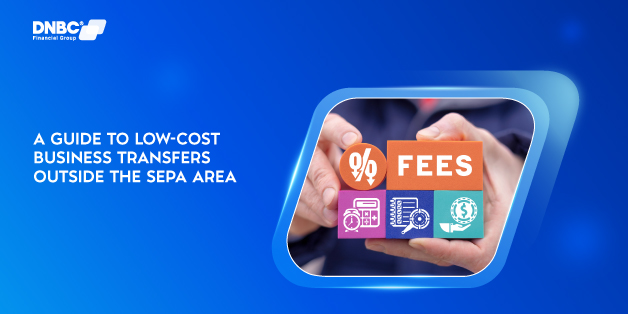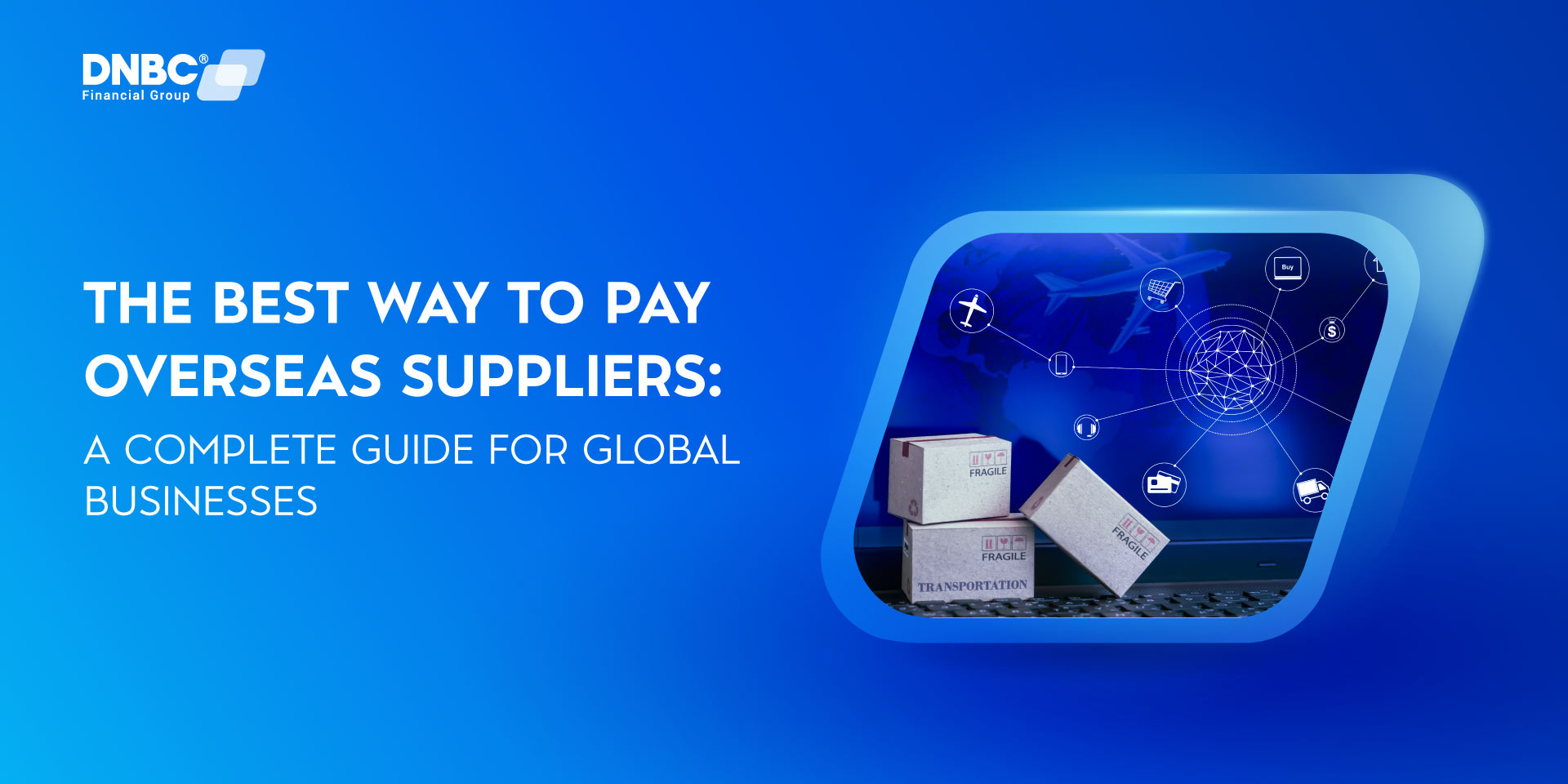- Home
- Blog
- Business Finance
- Multi-currency business account: simplifying global financial operations
Multi-currency business account: simplifying global financial operations
Business Finance
19 January 2025
DNBC Team
This article is a part of DNBCGroup Blog Center
Contact DNBCGroup for the technology news, tips, trends, and updates.
Nowadays, a multi-currency business account is no longer a luxury, it’s a necessity. As businesses expand into global markets, managing multiple currencies becomes critical.
These accounts streamline cross-border transactions, reduce costs, and minimize the complexities associated with currency exchange.
This article delves into the benefits of multi-currency business accounts, answers common questions like "What is the best foreign currency account?" and "How to open foreign currency account", and highlights their role in the foreign exchange market.
What is a multi-currency business account?
According to the WTO, global merchandise trade reached $22 trillion in 2022, increasing the demand for efficient cross-border payment solutions.
The global e-commerce market is expected to reach $5.5 trillion by 2025, with businesses needing to cater to international customers.
Whether in Europe, Asia, or the Americas, these accounts empower businesses to streamline operations, reduce costs, and thrive in the global economy.

A multi-currency business account allows businesses to hold, manage, and transact in multiple currencies within a single account. This eliminates the need for frequent conversions and reduces exposure to fluctuating exchange rates.
For example, an e-commerce business operating in Europe and North America can accept payments in both euros (EUR) and US dollars (USD).
This avoids conversion fees for each transaction, simplifying operations and giving businesses more control over their finances.
Benefits of a multi-currency business account
A multi-currency business account is a key tool for businesses operating in the global economy with some following benefits:
1. Cost efficiency
This helps to avoid frequent currency conversion fees. By holding multiple currencies, businesses can strategically time their exchanges to benefit from favorable rates.
A Deloitte report highlights that businesses using multi-currency accounts save up to 30% annually on conversion fees.
2. Simplified global transactions
A multi-currency account allows businesses to send and receive payments in local currencies, reducing delays and fostering trust with international partners.
The World Bank reported that global cross-border payments reached $156 trillion in 2022, underscoring the importance of seamless transactions.
3. Mitigating foreign exchange risks
Fluctuating exchange rates can negatively impact profit margins. Multi-currency accounts help businesses mitigate these risks by holding funds in stable currencies.
McKinsey's survey reveals that 50% of businesses experience financial losses due to exchange rate volatility, making this feature essential.

4. Enhanced financial control
Centralizing multiple currencies in a single account improves financial visibility, enabling better cash flow management and forecasting. According to PWC, businesses with centralized financial operations see a 20% improvement in efficiency.
5. Faster transactions
Multi-currency accounts facilitate quick international and domestic transfers through networks like SWIFT, which connects over 11,000 banks globally.
Transfers typically take 1-3 business days, saving time compared to traditional methods.
What is the best foreign currency account?
The best foreign currency account depends on the specific needs of your business.
Key factors to consider include:
- Currency Coverage: Ensure the account supports the currencies you deal with frequently (e.g., USD, EUR, GBP, CAD, and JPY).
- Competitive Exchange Rates: Look for accounts offering real-time interbank rates to minimize costs.
- Low Fees: Opt for accounts with transparent pricing and minimal transaction or maintenance charges.
- Ease of Access: Accounts with online or mobile banking platforms provide better flexibility and control.
For example, DNBC Financial Group offers a robust multi-currency business account with features like support for 20+ currencies, competitive exchange rates, and real-time transaction updates.
What accounts for most of the activity in the foreign exchange market?
The foreign exchange market is the largest financial market globally, with a daily trading volume exceeding $7.5 trillion (BIS Report, 2023). The majority of this activity is driven by:

- Speculative trading: Traders and institutions buying and selling currencies to profit from price changes.
- Cross-border trade: Businesses exchanging currencies for international transactions.
- Investment activities: International investments requiring currency conversions.
Currencies like the US dollar (involved in 88% of trades), euro (31%), and Japanese yen (17%) dominate the market.
How to open a foreign currency account?
Opening a foreign currency account can be an excellent option if you frequently deal with international transactions, want to save in a foreign currency, or travel often.
Here’s a detailed guide to help you open one:
1. Understand what a foreign currency account is
A foreign currency account allows you to hold, deposit, and transact in a currency other than your home currency. These accounts are beneficial for:
- International businesses.
- Expats or frequent travelers.
- Investors looking to hedge against currency fluctuations.
2. Evaluate your needs
Before opening the account, consider:
- Currency options: Determine which currency (e.g., USD, EUR, GBP) you need the account for.
- Purpose: Are you using it for trading, business transactions, savings, or paying for expenses abroad?
- Frequency of use: Consider the number of transactions and maintenance fees involved.
3. Choose a financial institution or service provider
- Local banks: Many domestic banks offer foreign currency accounts. Check if your bank provides this service.
- International banks: Multinational banks like HSBC, CitiBank, or Standard Chartered are known for their expertise in foreign currency accounts.
- Online banks or fintech: Platforms like DNBC Financial Group offer user-friendly and low-cost options for managing multiple currencies.
4. Check eligibility requirements
Most banks require the following to open a foreign currency account:
- Personal identification: Passport, government-issued ID, or national identity card.
- Proof of address: Utility bill or bank statement.
- Source of income or funds: Salary slips, business registration documents, or tax records.
- Initial deposit: Some accounts require a minimum opening balance, often specified in the foreign currency.
5. Compare features and fees

Not all foreign currency accounts are the same. Compare:
- Exchange rates: Favorable rates can save money on conversions.
- Transaction fees: Look for fees on deposits, withdrawals, or currency conversions.
- Monthly maintenance fees: Check for account management charges.
- Interest rates: Some accounts offer interest, but rates vary based on the currency and bank.
- Access to funds: Verify if you can manage the account online, through a mobile app, or at physical branches.
- FDIC (Federal Deposit Insurance Corporation) or equivalent insurance: Ensure your deposits are protected (if applicable in your country).
6. Submit an application
You can apply:
- Online: Many banks allow you to submit your application digitally.
- In person: Visit the bank branch to fill out forms and submit documents.
- Through phone: Some banks provide phone-based assistance to guide you through the process.
7. Deposit first funding
Once the account is approved:
- Transfer the required minimum deposit in the chosen foreign currency.
- Confirm any restrictions on deposits, such as limits on currency types.
8. Monitor and manage your account
- Currency fluctuations: Track exchange rates as they can impact the value of your account balance.
- Bank statements: Regularly review statements for accuracy.
- Alerts: Set up notifications for transactions or account activities.

9. Alternatives to a foreign currency account
If a traditional foreign currency account doesn't meet your needs, consider:
- Multi-currency accounts: These allow you to hold and transact in multiple currencies within one account.
- Borderless accounts: Offered by platforms like DNBC Global Account, these are ideal for managing cross-border transactions efficiently.
Your Trusted Partner
In your Digital
Journey
Free 1 - on -1 support
Free account opening fees
No hidden fees
Note: The content in this article is for general informative purposes only. You should conduct your own research or ask for specialist advice before making any financial decisions. All information in this article is current as of the date of publication, and DNBC Financial Group reserves the right to modify, add, or remove any information. We don’t provide any express or implied representations, warranties, or guarantees regarding the accuracy, completeness, or currency of the content within this publication.
Related posts

A Guide to Low-Cost Business Transfers Outside the SEPA Area
04 July 2025

How to Set Up a Business Escrow Account: A Simple Guide
20 June 2025

Cross-Border Business: Opportunities and Challenges in the Global Marketplace
23 May 2025

The Best Way to Pay Overseas Suppliers: A Complete Guide for Global Businesses
22 May 2025

Real Time Cross Border Payments: Shaping the Future of Global Financial Transactions
22 May 2025